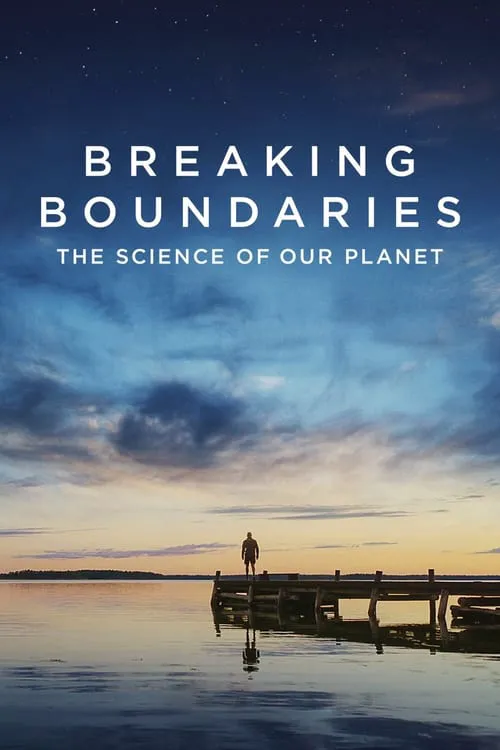Breaking Boundaries: The Science of Our Planet

Plot
Narrator Sir David Attenborough's voice echoes as the camera pans over the vast expanse of our home planet, showcasing its breathtaking beauty. This is not a documentary about the natural wonders of the world, but a film that reveals the dire state of our Earth. "Breaking Boundaries: The Science of Our Planet" delves into the critical issue of biodiversity collapse, a crisis that poses a grave threat to our very existence. Accompanied by Dr. Johan Rockström, a renowned scientist and Director of the Potsdam Institute for Climate Impact Research, Attenborough embarks on a poignant journey to expose the truth behind this catastrophe and, more importantly, to present a glimmer of hope – the possibility of still averting the impending disaster. The film begins by painting a vivid picture of our planet's rich biodiversity, showcasing diverse ecosystems teeming with life. From the lush forests of the Amazon to the coral reefs of the Great Barrier, the camera takes the viewer on a journey that highlights the intricate web of relationships between species. Attenborough poignantly emphasizes that our planet's unique biodiversity is not just a collection of individual species but a complex, interconnected network that sustains life on Earth. However, a stark contrast emerges as the documentary transitions into a disturbing exposé of the catastrophic collapse of biodiversity. Dr. Johan Rockström explains the nine planetary boundaries, which are critical thresholds that regulate Earth's systems and support life. These boundaries include climate change, deforestation, ocean acidification, and biodiversity loss. As the camera shows the devastating effects of these boundaries being breached, the viewer is met with a sense of urgency and despair. Breaking Boundaries reveals that human activities have resulted in the loss of 60% of the world's wildlife since the 1970s. The devastating impact of deforestation, pollution, and overfishing on marine ecosystems is starkly evident. The consequences of these actions are far-reaching, from rising carbon emissions to the decimation of entire species. Attenborough poignantly emphasizes that this collapse is not just an environmental issue but a social and economic one as well, with devastating impacts on human livelihoods. Despite the alarming state of affairs, Breaking Boundaries presents a beacon of hope. Dr. Rockström and Attenborough argue that we can still avert the impending disaster if we take immediate and collective action to protect planetary boundaries. They emphasize the importance of reducing greenhouse gas emissions, transitioning towards renewable energy sources, and implementing sustainable land use practices. The film showcases initiatives and solutions from around the world, demonstrating that there is still time to make a difference. One of the most compelling aspects of Breaking Boundaries is the spotlight it shines on the role of individual actions and collective responsibility. Attenborough emphasizes that every small step counts, whether it's reducing one's carbon footprint or advocating for climate action. The film also highlights the significance of community-led efforts to protect the planet, showcasing inspiring stories of people fighting against the destruction of their ecosystems. The film concludes on a poignant note, with Dr. Rockström emphasizing that the window of opportunity to act is rapidly closing. Attenborough's words, "This is a story of hope, but we only have a few days left to make a difference," serve as a powerful reminder of the urgency of the crisis. The documentary ends by encouraging viewers to take action, whether it's supporting organizations fighting to protect the planet or making conscious choices in their daily lives. Breaking Boundaries: The Science of Our Planet serves as a powerful reminder of our collective responsibility to protect the planet. The film's message of hope and urgency should stir viewers to take action, demonstrating that it's not too late to avert this crisis and create a sustainable future for generations to come.
Reviews
Recommendations




